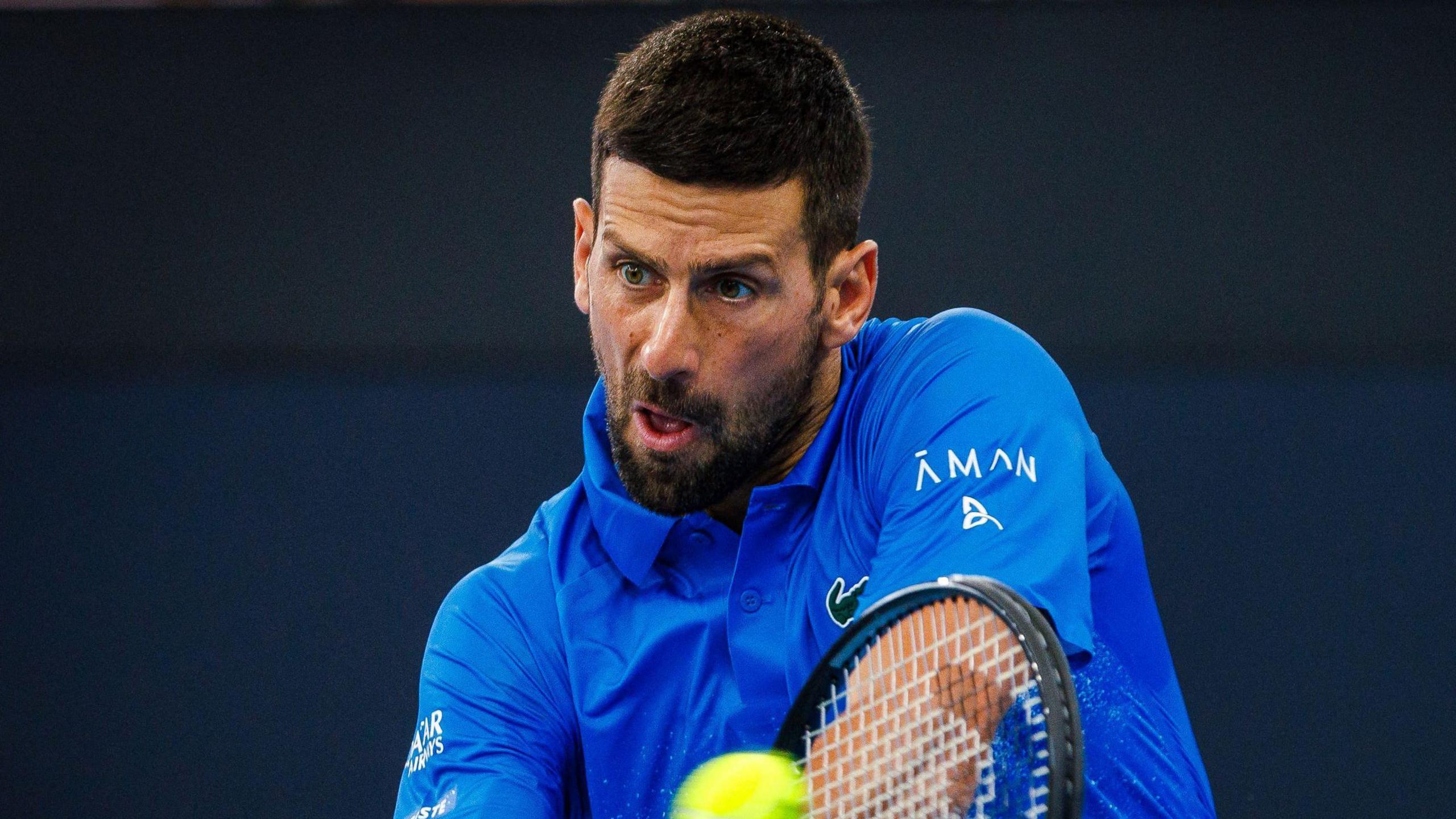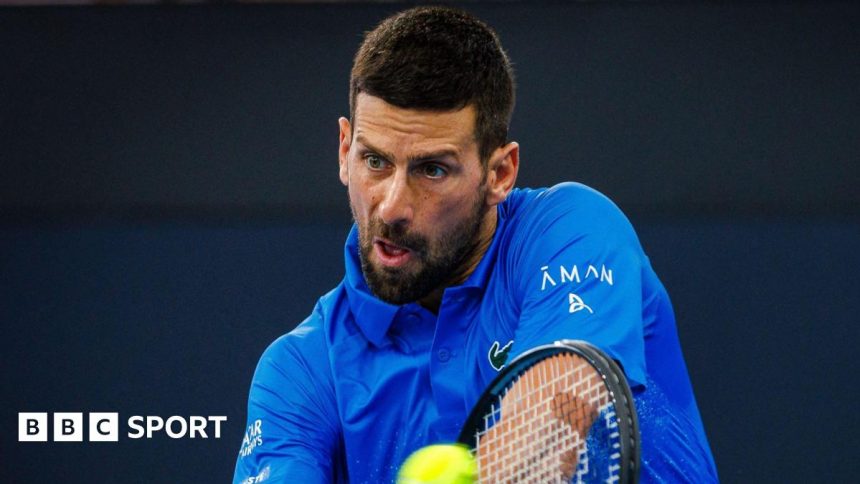Djokovic wants to ‘focus on tennis’ after poisoning claim

Novak Djokovic is aiming to win a record-extending 11th title at the Australian Open, which begins on Sunday
-
Published
Novak Djokovic says he wants to “focus on tennis” after claiming in a magazine interview he had been “poisoned” when detained in a Melbourne hotel.
Local reporters unsuccessfully demanded further explanation as the 37-year-old Serb walked out of a pre-Australian Open news conference which ended in bizarre fashion.
Djokovic, a record 10-time men’s champion at Melbourne Park, was deported from the Australian city in 2022 after arriving without a vaccination against Covid-19.
The deportation came when he failed to overturn a decision from the Australian government to cancel his visa on public health grounds.
In an interview with GQ magazine, external published on Thursday, Djokovic said he had “some health issues” when he returned to Serbia.
“I realised that in that hotel in Melbourne I was fed with some food that poisoned me,” he added.
“I had a really high level of heavy metal. Heavy metal. I had the lead, very high level of lead and mercury.”
The Australian Border Force has not responded to the accusations.
“For privacy reasons, we cannot comment on individual cases,” the Department of Home Affairs told BBC Sport.
-
-
Published3 hours ago
-
-
-
Published1 day ago
-
-
-
Published1 day ago
-
What happened in the news conference?
Djokovic’s news conference on Friday had been wrapped up by a moderator before the player said he would answer another question from an Australian reporter.
She asked Djokovic if he had evidence to support his claim the food he was served while detained in the Park Hotel caused the heavy metal levels.
“I’ve done that interview many months ago,” he replied.
“I would appreciate not talking more in detail about that, as I would like to focus on the tennis and why I’m here.”
Djokovic flew to Australia at the end of December and told Melbourne’s Herald Sun newspaper this week he still feels “trauma” when he arrives in the country.
Shortly before Djokovic was deported in 2022, a newspaper poll found 71% of Australians believed he should be deported but he received a warm welcome when he returned to Melbourne Park in 2023.
On Friday, Australian player Nick Kyrgios said the country “shouldn’t have” deported Djokovic.
What do the food experts say?
One Australian academic, speaking to the Guardian,, external said Djokovic’s claim was a “wild accusation”.
“It’s possible but very unlikely given how long he was locked up,” said Damian Maganja, research fellow in food policy at the George Institute for Global Health.
“These meals were probably made in mass amounts and there haven’t been other reports as far as I know.”
Djokovic was sent to an immigration hotel where refugees and asylum seekers had long complained of poor conditions.
In December 2022, shortly before Djokovic had arrived at the Park Hotel, detainees had complained about finding maggots in their food.
By the time Djokovic was sent there, the hotel had been certified and licensed by the City of Melbourne local authority as a food service premises. It was subject to auditing and inspection by the city’s Department of Health.
Detainees are said to have had access to a variety of food and beverages, which was deemed nutritious, culturally appropriate and met any specific medical or dietary requirements.
Djokovic has long been known to eat a gluten and dairy-free diet, while following a largely plant-based nutritional regime – which he has regularly cited as a recipe for his success.
Fish and shellfish commonly have higher levels of mercury than other foods, according to the NHS., external
Related topics
-
-
Published6 June 2024
-




